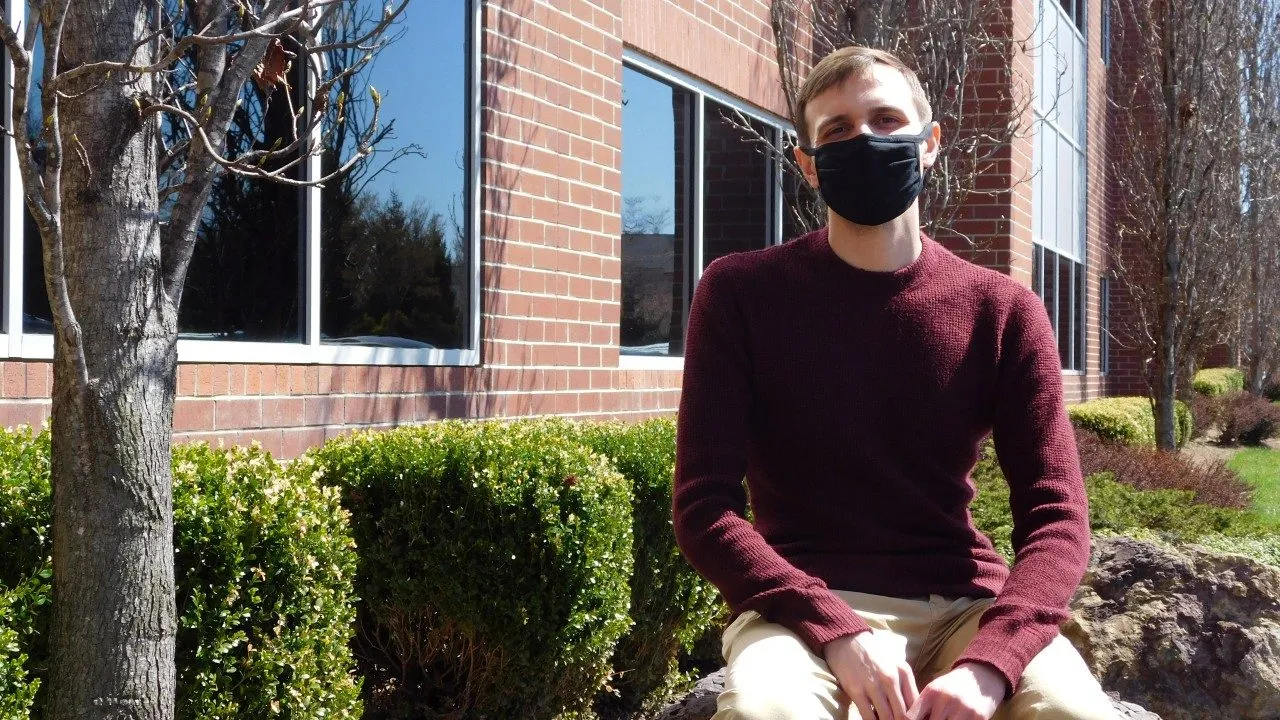April 26, 2021
TBMH graduate student awarded NIH fellowship to study ovarian cancer cell mitochondria

It takes only a few hours for ovarian cancer cells to come off of the original mass and spread throughout the abdomen, quickly forming tiny clumps of tumor cells called spheroids. When serous ovarian cancer progresses to this point, the patient has less than a 30 percent chance of survival.
This type of ovarian cancer is fast-growing, quick to spread, and difficult to detect early. However, researchers in Eva Schmelz’s laboratory at Virginia Tech recently found that the ovarian cancer cell spheroids adapt to become hardier and more energy-efficient, and hence more resistant to today’s clinical treatments.
Joe Grieco, a fourth-year Virginia Tech translational biology, medicine, and health (TBMH) graduate student, wants to find a way to halt the cancer’s spread by manipulating the cells’ ability to adapt their metabolic activity. Grieco was awarded a National Institutes of Health’s Ruth L. Kirschstein Predoctoral Individual National Research Service Award to support his research in the Schmelz lab. The two-year grant is also supported by the National Cancer Institute.
